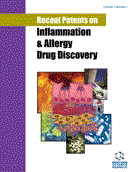Abstract
Contact allergy to topical corticosteroids (TCs) is an emerging problem, whose diagnosis can be complex owing to the peculiar characteristics of steroid allergens and the possible inadequacy of current diagnostic methods, including concentration and vehicle used in patch testing. The occurrence of cross-reactions among different TCs is not rare, but prediction of these is not sufficiently reliable. Moreover, the distinction between true cross-reactivity and concomitant sensitization may be difficult. The original classification proposed by Coopman et al. has been distinguished corticosteroids into four groups according to their molecular structure. These authors hypothesized that allergic contact reactions were more frequent with corticosteroids belonging to the same group. However, the clinical practice has evidenced that cross reactivity exists also among corticosteroids belonging to different groups. The potential to cross-react among corticosteroids is thought to be related not only to the structural homology but also to the stereoisomerism and metabolism of these drugs. Recent evidence suggests that mechanisms responsible for cross-reactivity may occur at T lymphocyte level during antigen presentation. Further investigations are needed to gain a more complete understanding of this important topic. This article also reviews some patents related to the treatment of contact dermatitis and other inflammatory skin diseases.
Keywords: Topical corticosteroids, classification, chemical structure, contact sensitization, cross-sensitization, allergic contact dermatitis, immunological mechanisms, hypersensitivity reactions
 47
47


















